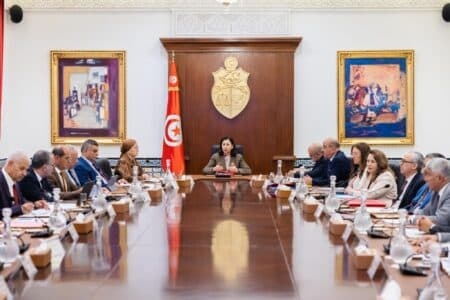The government’s chef, Sarra Zaafrani Zenzri, chaired on Tuesday September 2, 2025, at the Kasbah Palace, a ministerial council devoted to the project of the economic budget for the year 2026. Presented as a strategic roadmap, this document aims to translate the economic and social policy of the State. Emphasis is placed on social justice, regional development and sustainability.
During the meeting, the government’s heading recalled that the economic budget is above all a functional and prospective tool, intended to provide a global vision of economic and social balances.
A central role in advice
The 2026 project is part of the preparation of the 2026-2030 development plan, according to a logic of upward planning which gives a central role to local, regional and regional councils.
The document highlights several strategic objectives: to guarantee worthy living conditions and better social justice; Encourage investment and diversify the sources of wealth creation; strengthen economic resilience to crises; initiate structural reforms to improve public policies; accelerate the realization of public and private projects, in particular those offered by local councils from 2026.
The foundations of the social state
The government’s heading insisted on the need to make the economic budget an instrument for the translation of the main national orientations, in consistency with the presidential vision. The Council recommended in particular to consolidate the foundations of the social state through new hires in the public service and the regularization of precarious contracts; to combat precarious work and guarantee decent income with social protection; support low -income families and facilitate their economic inclusion; to improve the quality and proximity of public services, especially in health, education and transport.
Economic recovery and challenges
The 2026 Economic Budget draft intervenes in a context of fragile economic recovery, marked by climatic, energy and social challenges. It is intended to be an extension of the 2026-2030 five-year plan and an operationalization instrument for the “new vision of development” based on the balance between economic efficiency and social justice.
The Council also reviewed the global and national economic prospects for 2026, by fixing estimates relating to the growth of GDP, the evolution of productive sectors (agriculture, industry, services) as well as the development of foreign trade, investment and the phosphate sector.








